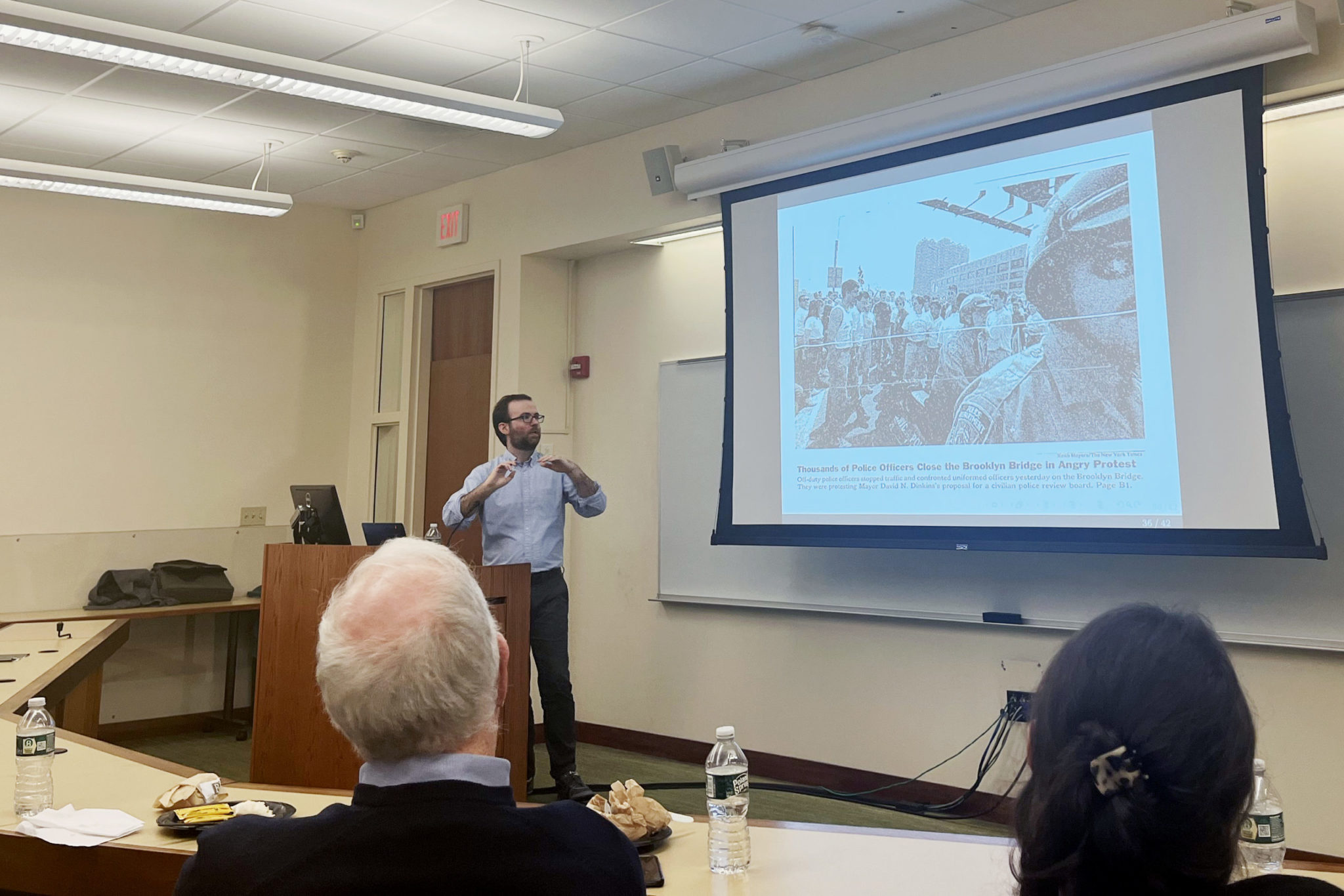American Politics and Public Policy Workshop series hosts talk on police in politics
White, a political science professor at Syracuse University, presented on the relationship between police and politics at an event held on Wednesday Oct. 26.

Nati Tesfaye, Contributing Photographer
Syracuse University professor Steven White shed light on the historical relationship between the police and politics at the Yale Institution for Social and Policy Studies in New York City.
The American Politics and Public Policy Workshop Series, which holds seminars every Wednesday at noon, invited White to present his research to graduate students and the greater Yale community.
“All democracies have police, but there’s something about police, that even if you think it’s necessary, it’s a bit uneasy — the use of force, this sort of idea of someone having a gun when they go to arrest you, there is something that sort of seems undemocratic about it,” White said.
White explained that his interest in policing was sparked by the complex relationship between policing and democracy in America’s political systems. He described the idea that a seemingly militaristic force could play a crucial role in politics as “odd.”
White hopes to assess the evolution of this relationship and public perception of police involvement in politics from the late 19th century to the 1960s. Research into this relationship has become increasingly prominent in the 21st century given the rise of police brutality lawsuits and calls to hold law enforcement more accountable, according to White.
White said that the shift in public perception on police involvement has been drastic. White said that in the late 1800s to the early 1900s, police were unable to unionize. Beginning in the early to mid-20th century, police unions across the country and at the federal level began to use their political leverage to sway elections by endorsing candidates.
To illustrate this point, White referenced the substantial effect of America’s largest police union’s endorsement of Trump in the 2016 presidential election.
Attendee Jack Greenberg GRD ’24 noted that research on policing within political science has grown since the 2020 Black Lives Matter protests. Despite many political scientists analyzing the role of law enforcement, Greenberg said that White’s methodology distinguishes his research.
“What sets Professor White’s ongoing research apart is that it takes more of a developmental approach — raising questions about the processes that have occurred over time that structure the current role of police in America,” Greenberg said. “White helps us understand how much of a departure these practices are from earlier police behavior and how that change came about.”
Given its insightful approach, Greenberg described White’s research on the relationship between politics and the police as “an important intervention.”
Professor Shiro Kuriwaki, a co-organizer of last week’s seminar, also praised White’s approach.
“Professor White’s scholarship combines archival investigation and quantitative analysis,” Kuriwaki said. “That strikes me as a promising approach to studying police internal deliberations, where much of the relevant information that a researcher would want is not easily available.”
Moving forward, White hopes his research culminates in a book, but believes there remains more work to be done before the can happen. White aims to expand his research to other cities to assess the complexities of this evolution and to incorporate and research police precincts from rural areas.
The Institution for Social and Policy Studies is located at 77 Prospect St.







